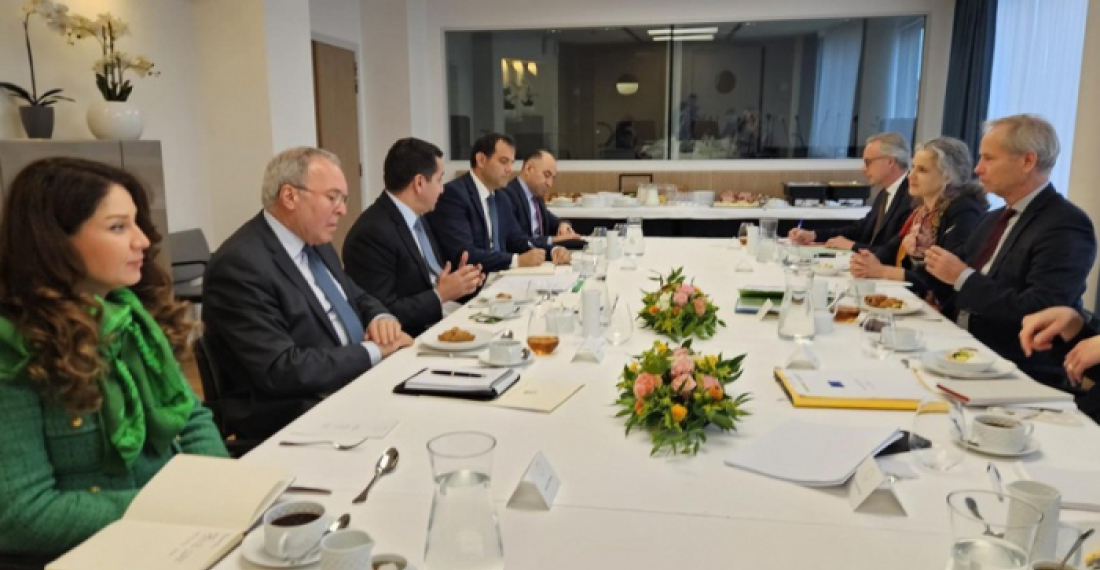The 6th round of the Security Dialogue between the European Union and Azerbaijan was held in Brussels, the Azerbaijani Ambassador to Belgium and Luxembourg, Head of the Delegation to the EU Vaqif Sadiqov wrote on his page on X. The meeting was co-chaired by Hikmet Hajiyev, the Assistant of the President of Azerbaijan & Head of the Foreign Policy Department of the Presidential Administration and Olof Skoog, the Deputy Secretary General of the European External Action Service.
Ambassador Sadiqov noted that during the meeting the parties held meaningful and open discussions on the prospects for cooperation.
“Substantive and open discussions took place on current relations and prospects for cooperation in the political and security sphere. This dialogue follows a series of important high-level EU-Azerbaijan meetings held in recent months in Malta, Baku, Brussels, Tirana. Bilateral, regional and global developments require regular, targeted exchanges of views. Important discussions also took place today with other senior EU officials and representatives of a number of EU Member States, including the host country Belgium,” Sadiqov stated.
Relations between the EU and Azerbaijan are based on the EU-Azerbaijan Partnership and Cooperation Agreement in force since 1999. Negotiations on a new and upgraded framework agreement designed to reflect the enhanced and mutually beneficial EU-Azerbaijan cooperation in a wide range of areas, strengthen policy dialogue in key sectors and boost trade are at an advanced stage.







